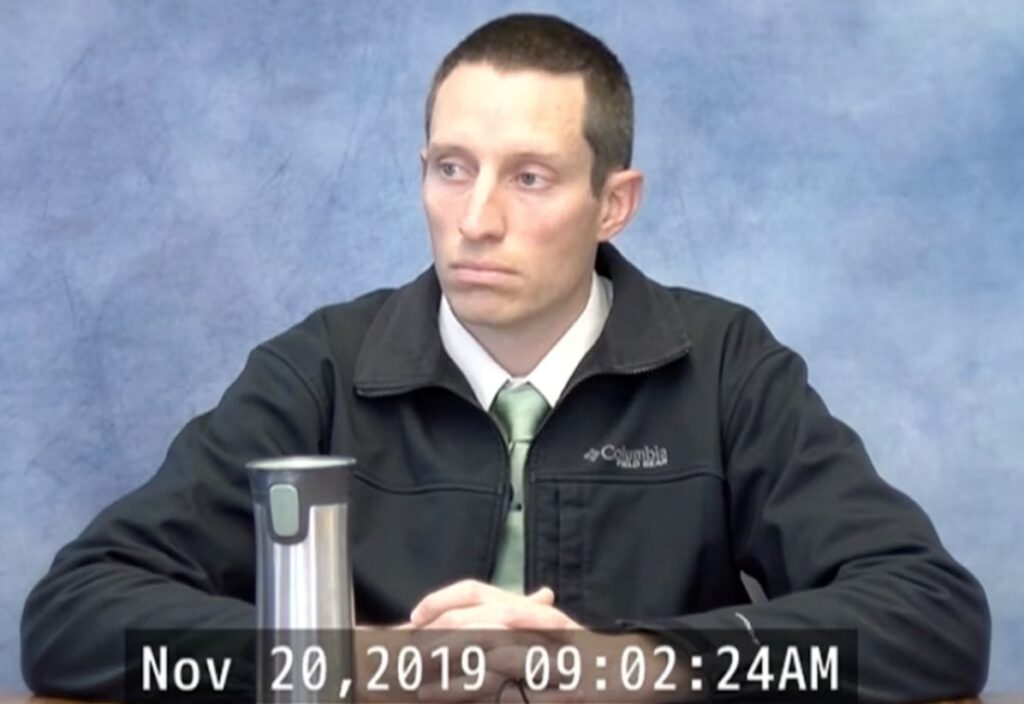A lawyer for the
Oregon prison nurse
sentenced to 30 years for sexually
abusing nine incarcerated women
urged a federal appeals court to throw out his convictions, arguing that the defense was blocked from presenting a complete challenge to the government’s allegations.
“This was a close case,” Assistant Federal Public Defender Elizabeth G. Daily said. “The complainants certainly had reasons to lie, and we weren’t allowed to show that they were lying.”
Daily argued that no physical, forensic or video evidence supported the allegations that Tony D. Klein sexually assaulted the women when they sought medical care or worked in the medical unit in 2016 and 2017 at Coffee Creek Correctional Facility, the state’s prison for women.
She also noted that Klein had passed two independent polygraph exams, while acknowledging those were not admissible in court.
But the biggest obstacle to a fair trial was U.S. District Judge Michael H. Simon’s limitations on defense testimony that tilted the trial in the prosecution’s favor, Daily said.
Klein’s defense lawyers couldn’t develop an argument that one of the former Coffee Creek prisoners who had connections to nearly all of the other women in the case had falsely accused Klein to pursue a civil claim and was “rounding up people to lie about Mr. Klein,” Daily told a panel of the 9th U.S. Circuit Court of Appeals in Portland.
“The trial court’s exclusion of this linchpin testimony on relevance and hearsay grounds resulted from legal error and violated Klein’s right to present a complete defense,” Daily said.
She also said the district judge wrongly excluded other testimony from some of Klein’s co-workers who would have testified that they never saw him act unprofessionally with prisoners.
On the eighth day of trial after the government rested, the defense presented the testimony of two potential witnesses outside the presence of the jury. A former Coffee Creek prisoner, Deborah Beaver, testified that another former inmate, Kameron Baszler, and one of Klein’s alleged victims planned to falsely accuse Klein of sexual abuse and attempted to recruit her to their scheme. They had discussed the scheme at a table in the day room and intended to sue Klein for money, according to Beaver, but Beaver refused and reported the scheme to another nurse, who confirmed the report.
Simon excluded the testimony regarding Baszler because Baszler did not testify, her credibility was not at issue and found that “whether or not Kameron Baszler wanted to or intended to make false charges against Mr. Klein” was irrelevant.
Further, Daily argued, the defense suffered when Simon ruled they could not introduce evidence that two of the alleged victims of Klein were cooperating with two different law enforcement agencies, a local police agency and the Drug Enforcement Administration, in drug investigations and set to gain significant benefits from doing so.
Simon denied any testimony on the cooperating status of those alleged victims in the case, also finding it irrelevant because they were working for law enforcement agencies not involved in Klein’s case.
U.S. Department of Justice attorney Jason Lee defended Simon’s rulings in the case.
“Seventeen women described seeking medical treatment and instead being raped and sexually assaulted by Klein,’’ Lee said.
Defense lawyers could have called the former prisoner who they alleged schemed to have others fabricate allegations against Klein but did not. They also could have cross-examined each of the women who were allowed to testify about whether they had been recruited to lie, Lee said.
Lee also noted that four medical staff and two security staff actually did testify that they never saw any inappropriate conduct by Klein during defense lawyers’ cross-examination of government witnesses.
After a three-week trial in July 2023, a jury convicted Klein of depriving women inmates of their constitutional right against cruel and unusual punishment through sexual assault and sexual abuse. He also was convicted of lying about his conduct under oath in related civil suits.
The women said Klein coerced some of them into performing oral sex or having sex with him in an exam room or closet. He also stood extremely close to prisoners, rubbed up against them, groped them, pulled their hair and placed their hands on his pants, the women said.
Klein, now 40, is serving his sentence in a federal prison in Otisville, New York.
The three-judge panel that heard the case included Senior 9th Circuit Judge Richard C. Tallman and Judges John B. Owens and Lawrence VanDyke.
— Maxine Bernstein covers federal court and criminal justice. Reach her at 503-221-8212, mbernstein@oregonian.com, follow her on X
@maxoregonian
, on Bluesky
@maxbernstein.bsky.social
or on
LinkedIn
.





More Stories
Convicted Oregon prison nurse appeals convictions: Lawyer claims unfair trial limitations
Convicted Oregon prison nurse appeals convictions: Lawyer claims unfair trial limitations
Convicted Oregon prison nurse appeals convictions: Lawyer claims unfair trial limitations